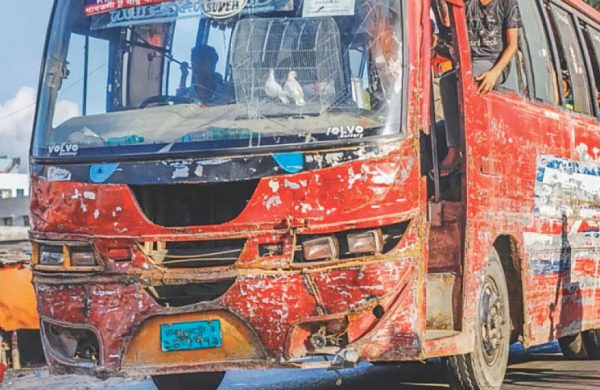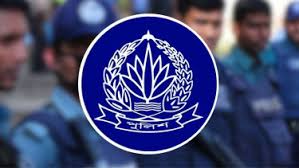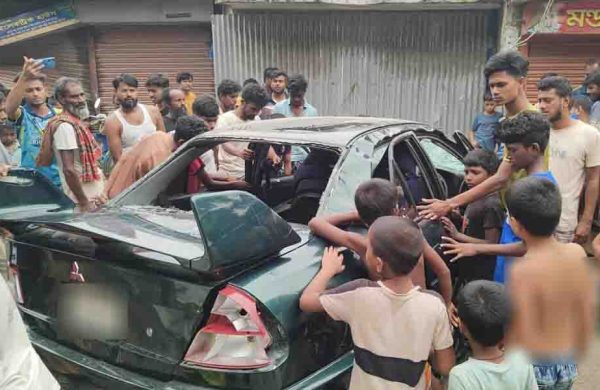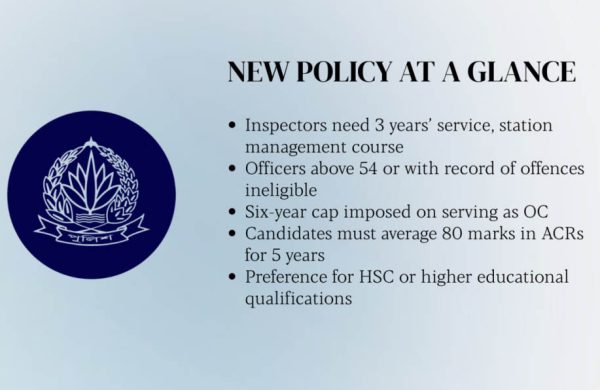7th anniversary of road safety movement: Road crashes, deaths unabated as laws, guidelines ignored
- Update Time : Monday, July 28, 2025

Staff Correspondent:
Anarchy and indiscipline continue to plague the transport sector, largely due to the non-implementation or poor enforcement of laws, regulations, and government directives. This makes roads increasingly hazardous and causes thousands of deaths and injuries each year.
A few lakh unfit and outdated vehicles are operating across the country while drivers, many of whom do not have licences, often engage in speeding due to lax monitoring and enforcement of the law.
At least 6.26 lakh vehicles did not get their fitness certificates as of July 24 this year, according to Bangladesh Road Transport Authority (BRTA) data.
On the other hand, 80,309 vehicles, or 27 percent of total registered commercial vehicles have already exceeded their economic life, according to BRTA data updated on July 16.
With a large number of unfit and outdated vehicles still on the roads, road crashes and fatalities have continued unabated.
Against the backdrop, the country is going to observe on Tuesday the seventh anniversary of the road safety movement, when thousands of people, mostly students, demonstrated for over a week, demanding safer roads.
On July 29, 2018, two students were killed after being run over by a bus, which was racing with another, in the capital’s Kurmitola, sparking an unprecedented movement across the country for safe roads.
Following the movement, the then government enacted the Road Transport Act-2018 and promised different initiatives but those were not implemented fully.
At least 2,943 people were killed in 3,039 road crashes in the first six months of this year, according to BRTA data. The number of deaths and road crashes was 5,480 and 5,856 last year.
However, the number of road crashes and deaths reported by various non-governmental organisations is higher.
Transport expert Prof Shamsul Hoque said the BRTA, as the regulatory body, lacks the capacity and professionalism to enforce laws and regulations due to its structural weaknesses.
“BRTA is a very weak agency. Its shortcomings have contributed to the growing problems in the transport sector, and resolving them has now become extremely difficult.
He said while discussions on road safety are ongoing, new challenges — such as a sharp increase in the number of motorcycles and three-wheelers — have added to the existing issues, making roads even more hazardous.
Responding to a question, Prof Shamsul, also the director of Buet’s Accident Research Institute, said it is very unfortunate that no visible positive change has taken place, even after the political changeover last year. BRTA had an opportunity to bring changes but failed to capitalise on it, he added.
BRTA Chairman Abu Momtaz Saad Uddin Ahmed could not be contacted for comments.
Muhammad Fouzul Kabir Khan, adviser to the road transport and bridges ministry, said the government is working to gradually implement the laws and directives.
He said a pilot project is already underway on a route to operate buses under a franchise system, where all drivers and staff must be formally appointed.
In addition, they have launched a drive against outdated vehicles, but transport owners and workers have threatened to go on strike in response.
“In reality, they [transport owners and workers] take a stand against the initiative,” he told this correspondent on Sunday.
He added that the authorities would hold talks with transport leaders to resolve the issues, as public suffering would rise if vehicles are taken off the roads.
NON-EXECUTED LAWS, DIRECTIVES
The Road Transport Act-2018, which came into effect in November 2019, clearly states that no one can be recruited as a driver without being issued an appointment letter by the transport owner.
A high-powered taskforce, formed during the previous government to reduce road crashes and restore discipline in the transport sector, repeatedly decided in its meetings that transport workers must be provided with appointment letters.
However, both the law and the taskforce’s decisions have largely been ignored.
Instead of issuing appointment letters or setting a fixed salary structure, many transport owners continue to hire drivers on a daily basis and pay them based on the number of trips.
As a result, especially in the capital, drivers often engage in reckless competition to pick up more passengers and earn more fare, a practice widely seen as a major contributor to crashes.
When the road transport act was enacted in September 2018, it also incorporated a demerit points system for driving licences aimed at curbing traffic rules violations and improving road safety.
Under the system, each driver would be allotted 12 points, with one or two points deducted for each violation. A licence would be revoked if all points were lost.
Nearly seven years have passed, yet the system has not been implemented. A BRTA official said the system is almost ready and that they have already held discussions with police, but it has not been introduced.
In May last year, the government introduced the Motor Vehicle Speed Limit Guideline-2024, aiming to curb speeding, one of the leading causes of road crashes.
According to the guideline, which came into effect the same month, the speed limit for cars, buses, and minibuses on expressways is set at 80km per hour, while it is 60kmph for motorcycles and 50kmph for trucks.
On the national highways, the limit is 70kmph for cars, buses, and minibuses, 50kmph for motorcycles, and 45kmph for trucks and articulated lorries.
Anyone violating these limits faces punitive action under the road transport act, including up to three months’ imprisonment, a Tk 10,000 fine, or both.
However, the guideline has largely been ignored over the past year, with limited enforcement seen only on select roads like the Dhaka-Mawa Expressway, Dhaka Elevated Expressway, and Dhaka-Chattogram highway.
The operation of locally made, slow-moving three-wheelers alongside high-speed vehicles on highways is widely regarded as a major cause of road crashes. This concern has been reflected in reports by various road crash probe bodies and non-government organisations that compile road crash data.
In August 2015, the road transport and bridges ministry imposed a ban on three-wheelers on 22 major highways to help reduce road crashes.
The High Court in January 2017 ordered imposing a ban on such improvised three-wheelers on highways across the country to reduce the number of road crashes.
However, these vehicles remain on highways — backed by influential individuals who see them as an easy way to make a quick profit.

















